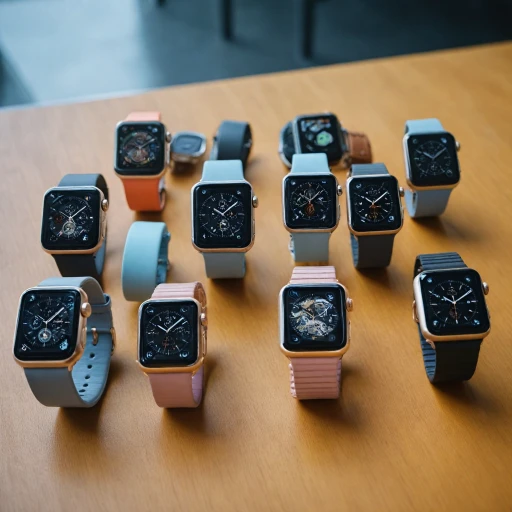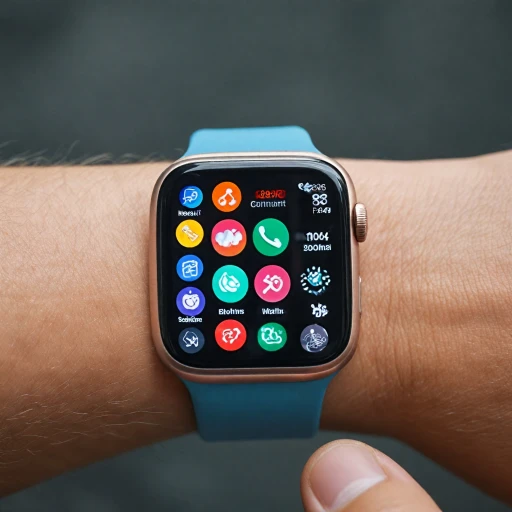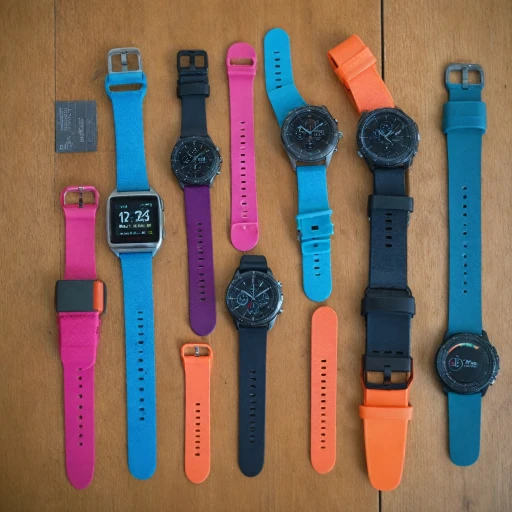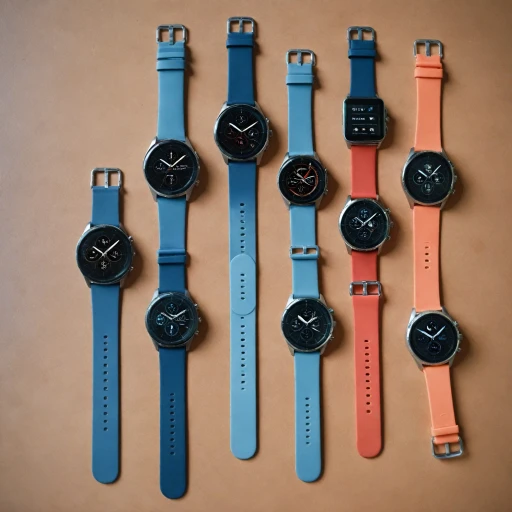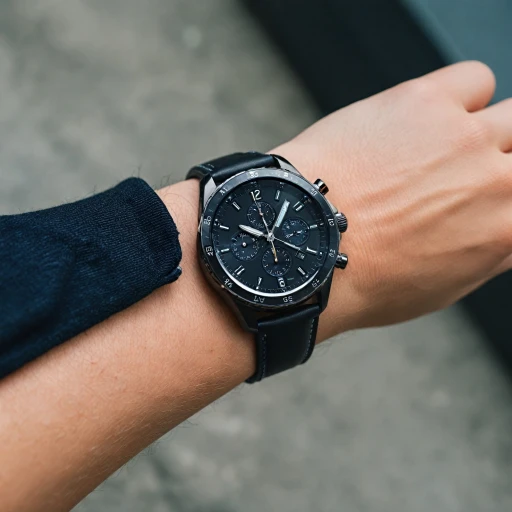
Understanding the Basics of Fitness Trackers
The Essentials of Fitness Tracking Devices
Fitness trackers have rapidly gained popularity, providing users with detailed insights into their daily activities and overall wellness. These wearable devices, often styled like a watch or band, are equipped with sensors to monitor various aspects of fitness and health, such as steps, heart rate, and sleep patterns. Fitness trackers come in various forms, from the classic style of the Fitbit Charge to sophisticated options like the Garmin and Apple Watch series. Their effectiveness mainly depends on the tracking capabilities and their role in enhancing your wellness journey. Key features to consider in these devices include their ability to track heart rate accurately, the effectiveness of sleep tracking functions, and reliable GPS for outdoor activities. It's crucial to ensure the device maintains a good balance of these features while offering an adequate battery life to remain functional for extended periods without frequent charging. Battery life can be a game changer for those who wish to optimize the use of these devices. Brands like Apple and Samsung Galaxy incorporate features like sleep data monitoring without significantly compromising battery duration. When navigating through various options, understanding the impact on health is vital. The ability to analyze captured data, the integration with health-focused apps, and the real-time insights a fitness tracker provides contribute significantly to its effectiveness, making it an essential part of a healthy lifestyle. For those exploring the potential of smartwatches beyond fitness, such as for monitoring blood sugar levels, further information can be found here. In the rapidly evolving fitness technology market, popular brands like Amazfit, Oura Ring, and others, provide unique selling points and expert reviews that can guide your purchase decision. While exploring these options, consider fundamental factors such as water resistance, whether you need built-in GPS, and how the device will function within your lifestyle needs for a more informed choice.Key Features to Look for in a Fitness Tracker
Essential Features to Consider in a Fitness Tracker
When diving into the world of fitness trackers, it's crucial to identify the features that align with your fitness goals and lifestyle. Here are some key aspects to evaluate:
- Heart Rate Monitoring: A reliable fitness tracker should constantly monitor your heart rate, providing insights on your cardio health and exertion levels during workouts.
- Sleep Tracking: Understanding your sleep patterns is vital for achieving optimal health. Brands like Fitbit and the Apple Watch feature detailed sleep tracking abilities that help you analyze your rest periods and sleep quality.
- Battery Life: Longer battery life means less frequent charging and more data collection. Trackers such as the Amazfit Band and Garmin models often boast impressive battery longevity, extending up to several days.
- Water Resistance: Whether you're swimming, showering, or simply sweating, water resistance is crucial. Fitness trackers should withstand moisture to ensure durability and accuracy.
- Built-in GPS: For outdoor enthusiasts, a built-in GPS is indispensable for tracking activities like running or cycling without the need for a smartphone. Garmin watch series and Samsung Galaxy Watch are popular for this feature.
Evaluating these features helps you narrow down the best fitness tracker to suit your needs, ensuring you get the most out of your device in supporting your health and fitness journey.
The Role of Fitness Trackers in Health and Wellness
The Impact of Fitness Trackers on Health and Wellness
Fitness trackers have become an integral part of many people's health and wellness routines. These devices, ranging from the Apple Watch to the Fitbit Charge, offer a plethora of features that help users monitor their physical activity, heart rate, and even sleep patterns. By providing real-time data, these trackers empower users to make informed decisions about their health.
One of the standout features of modern fitness trackers is their ability to monitor heart rate continuously. This feature is crucial for those looking to optimize their workouts or keep an eye on their cardiovascular health. Brands like Garmin and Samsung Galaxy offer advanced heart rate tracking, which can be particularly beneficial for athletes or individuals with specific health goals.
Sleep tracking is another significant aspect of these devices. Understanding sleep patterns can provide insights into overall health and well-being. Devices like the Oura Ring and the Amazfit Band offer detailed sleep analysis, helping users identify areas for improvement in their sleep hygiene.
Moreover, the integration of GPS in fitness trackers allows for precise tracking of outdoor activities. Whether you're a runner, cyclist, or hiker, built-in GPS features in devices like the Garmin and Galaxy Watch series can enhance your outdoor experience by providing accurate distance and pace metrics.
Battery life is a critical consideration for many users. While some trackers offer extensive battery life, lasting several days, others may require more frequent charging. It's essential to weigh the importance of battery life against other features when choosing the best fitness tracker for your needs.
Finally, the role of fitness trackers in health and wellness extends beyond physical activity. Many devices now offer features like water resistance, making them suitable for swimming, and app integrations that provide a holistic view of your health data. As technology advances, we can expect even more innovative features to emerge, further enhancing the capabilities of these devices.
Comparing Popular Fitness Tracker Brands
Making Informed Choices Among Top Fitness Trackers
When diving into the plethora of options available in the fitness tracker market, it's crucial to weigh the offerings of popular brands. Each major player – from Fitbit, Garmin, and Apple to Samsung and Amazfit – boasts unique features and strengths that appeal to different users based on their fitness goals and lifestyles.- Fitbit Charge: Known for its user-friendly interface and comprehensive health tracking, Fitbit offers robust heart rate monitoring and sleep tracking capabilities. However, it's important to consider the battery life, which might need frequent charging compared to others.
- Garmin: Offering built-in GPS and exceptional battery life, Garmin is often heralded as the best choice for outdoor enthusiasts and athletes. Garmin's tracking capabilities for various terrains are unmatched, but its app interface might feel complex for beginners.
- Apple Watch: Renowned for its seamless integration with iPhone, this watch stands out for accurate activity tracking and a broad app ecosystem. Its heart rate monitoring and sleep tracking are commendable, though the price may impose limitations for budget-conscious users.
- Samsung Galaxy Watch: A strong contender with built-in GPS and water resistance, the Galaxy Watch offers balance between price and features. Its comprehensive fitness tracking, including sleep quality, makes it desirable for those seeking all-around capability.
- Amazfit Band: Offering impressive features at a competitive price, Amazfit delivers reliable tracking performance suitable for casual fitness enthusiasts. Although it might lack the brand prestige of others, the battery life often exceeds expectations.
Challenges and Considerations When Choosing a Fitness Tracker
Overcoming the Challenges When Picking Your Fitness Companion
When choosing a fitness tracker, many prospective buyers often encounter several challenges that can make the process daunting but ultimately rewarding. Understanding and addressing these issues can significantly ease the selection process, enabling you to find the best tracker to support your health journey.- Battery Life Concerns: One major consideration is battery life. Devices like the Garmin and Apple Watch usually boast longer battery durations. However, ensure to match the battery life to your usage. For daily heart rate and sleep tracking, opt for a watch that can hold a charge for multiple life days.
- Price Sensitivity: The price tag is a common point of hesitation. Fitness trackers range from affordable models like the Amazfit Band to high-end gadgets like the Apple Watch Series. Weighing cost against features can guide you to a balanced decision.
- Compatibility Issues: Ensure that the tracker supports the necessary apps and synchronizes with your devices. The Fitbit Charge, for example, provides a broad spectrum of app compatibility, enhancing your overall experience.
- Accuracy in Data Tracking: While fitness trackers are designed to accurately track various health metrics, some variations exist. Brands such as Samsung Galaxy Watch and Fitbit are known for reliable data tracking, but verifying expert reviews can help ensure you choose the right product for your specific needs.
- Water Resistance: For swimmers or those who engage in water-based activities, water resistance is essential. Many fitness watches now incorporate this, but it’s crucial to check the specifications to align with your lifestyle.
Future Trends in Fitness Tracker Technology
Emerging Innovations in Fitness Tracker Technology
As the demand for more advanced and efficient fitness trackers continues to grow, several key trends are shaping the future of these devices. From improved heart rate tracking to enhanced battery life, these innovations promise to redefine how individuals monitor their health and fitness.
Enhanced Health Monitoring
The pursuit of more sophisticated health features has led to the integration of new sensors capable of providing real-time data beyond basic metrics. New trackers are focusing on comprehensive health monitoring, including advanced heart rate analysis, stress detection, and even the ability to identify potential arrhythmias.
More Personalized Insights
Leveraging artificial intelligence, future fitness trackers are expected to offer personalized insights that cater to individual needs. These insights will be based on a broader set of health and fitness data, including sleep patterns and activity levels, to recommend tailored wellness plans.
Enhanced Connectivity and Integration
As technology advances, expect to see better connectivity features in fitness trackers, like improved integration with existing devices such as smartphones and smart homes. This will allow users to effortlessly access their data through various platforms and make use of a unified ecosystem for their health and fitness journey.
Advanced Design and Durability
Future designs will emphasize comfort without compromising on features. Manufacturers are investing in materials that enhance the trackers' water resistance and durability, crucial for users with active lifestyles. The design improvement goes hand-in-hand with expanded functionality and aesthetic appeal, making them suitable for all-day wear.
Broader Accessibility and Affordability
Price points for advanced devices are expected to become more competitive, making high-tech features like built-in GPS and comprehensive sleep tracking more accessible to the average consumer. This shift will allow more individuals to benefit from best-in-class fitness tracking technology without breaking the bank.
Promises of Long-lasting Battery Life
Advanced battery technology is a critical area of focus. The aim is to achieve extended battery performance that can last multiple days on a single charge, maintaining robust functionality without frequent recharging interruptions.
With brands like Garmin, Apple, Samsung, and Fitbit continuously pushing the envelope, the evolution of fitness trackers remains an exciting space to watch. These innovations underscore the commitment to improving not only fitness results but holistic well-being.



